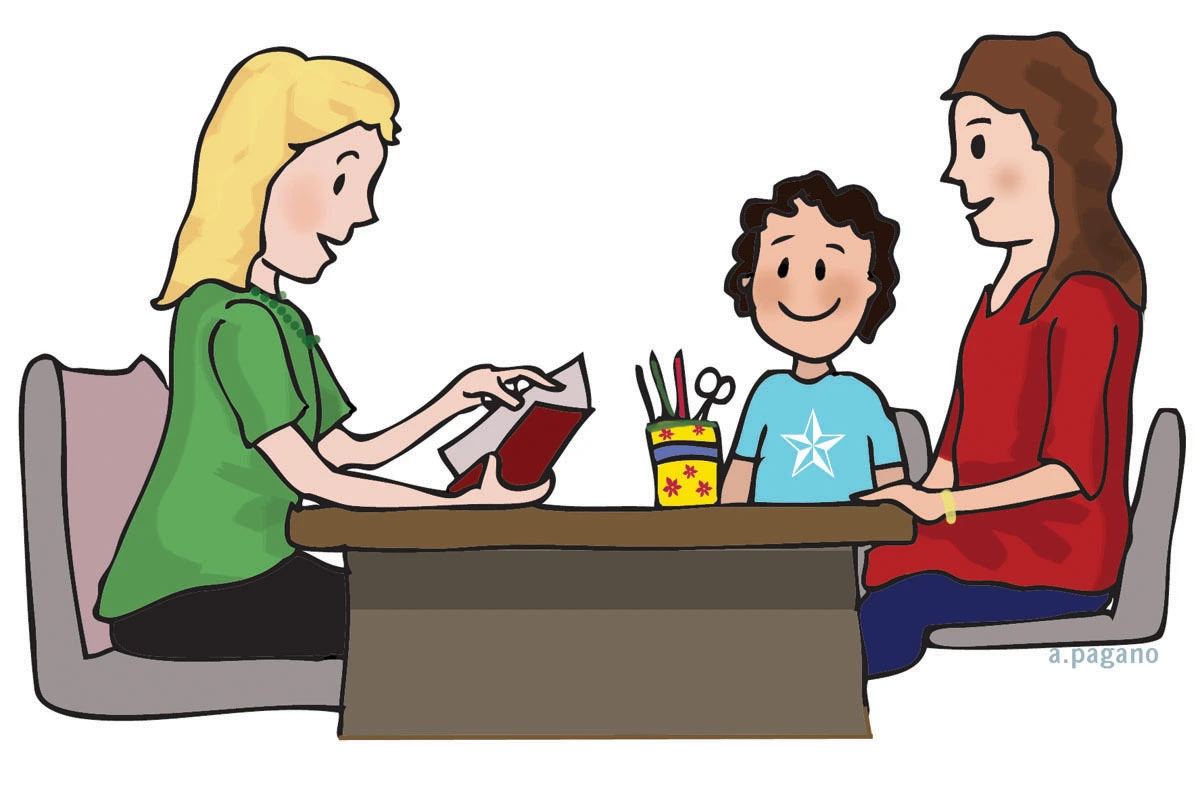
Parents should not miss the chance to participate in their child's education—parent-teacher conferences are essential. A parent-teacher conference can be instructive and fruitful if you know what questions to ask. You can obtain a thorough understanding of your child's development, capabilities, and areas in need of improvement by planning important questions. We'll go over the key questions to ask at a parent-teacher conference in this blog post so you can be prepared and ready to help your child succeed in school.
The Goal of Parent-Teacher Conferences
Parent-teacher conferences are intended to help parents and educators communicate with one another to build a relationship that will benefit the child's academic and personal growth. These sessions offer a forum for talking about the child's overall development, social skills, mental health, and academic achievement. You may work together to resolve any issues and make plans for your kid's future success by comprehending the teacher's point of view and exchanging information about your child.
Questions to Ask at a Parent-Teacher Conference
Being prepared with questions for a parent-teacher conference guarantees that you will address all important facets of your child's education. Here are seven crucial inquiries to think about:

1. May I Tell You About My Child?
By providing the instructor with some background information on your child, you may assist them in better understanding your child's individual needs, interests, and personality. This inquiry establishes the parameters for a two-way conversation and gives the teacher's concerns and observations some context.
Example: "May I tell you about my child's interests in science and how they love to read mystery novels?"
Tip: Draw attention to any particular advantages or difficulties your child has at home that may not be seen in the classroom.
2. May I Tell You About What’s Going On at Home?
Providing pertinent family circumstances or changes at home might help put your child's behavior and academic achievement in context. The instructor can better support your child if they have a better understanding of the home setting.
Example: "Recently, we've had some changes at home, such as moving to a new house. Has my child mentioned anything about it at school?"
Tip: Communicate honestly with your child about any life events or stressful situations that could impact their emotional or academic health.
3. How Is My Child Doing Socially?
It's critical to comprehend how your child interacts with others in school. Inquire about their social issues, involvement in group activities, and friendships. Social skills have an impact on academic success and are essential to overall growth.
Example: "How does my child interact with their peers during group activities or recess?"
Tip: Find out about any special activities or programs the school provides to promote social development related to social skills.
4. How Is My Child Doing Emotionally?
A child's ability to succeed academically is largely dependent on their emotional health. To learn more about your child's emotional state and how they manage stress, irritation, or other emotions in the classroom, ask the teacher to share their observations.
Example: "Have you noticed any changes in my child's mood or behavior that might indicate they are feeling stressed or anxious?"
Tip: Talk about any techniques the instructor uses to assist with emotional control and how you may practice these techniques at home.
5. What Are My Child’s Academic Strengths and Weaknesses?
You can determine where your child thrives and where they might need more support by learning about their academic strengths and weaknesses. This information enables you to customize your aid at home and, if needed, seek out further options.
Example: "Can you tell me about my child's strengths in reading and areas where they might need improvement in math?"
Tip: Request particular evaluations or instances that accentuate these advantages and disadvantages.
6. Is My Child Performing on Grade Level?
It's critical to know if your child is functioning at, above, or below grade level to monitor their academic progress. You can determine if they require more difficulties or assistance by asking them this question.
Example: "Is my child's reading level consistent with their grade level expectations?"
Tip: Inquire about the interventions or supports available to assist your child catch up if they are performing below grade level.
7. What Do Academic Performance Assessments Mean?
Instructors gauge their students' performance using a variety of tests. Gaining insight into these evaluations and the information they reveal about your child's skills might help you see your child's academic status more clearly.
Example: "Can you explain what the recent math assessment results mean for my child's progress?"
Tip: Find out how frequently these tests are given and how the outcomes are applied to guide education.
Ask and Answer Questions About Your Child’s Life

An effective parent-teacher meeting necessitates a reciprocal information exchange. Be ready to respond to inquiries from the teacher regarding your child's conduct, hobbies, and daily schedule at home. This exchange of information improves understanding and encourages a team approach to your child's education.
Example Questions from Teachers
- "How does your child feel about their homework?"
- "Are there any specific areas where your child has expressed frustration or difficulty?"
- "What extracurricular activities is your child involved in?"
Responding to Teacher Questions
To improve the teacher's comprehension of your child's context, make sure to give candid and thorough answers. Because of this openness, your kid can receive individualized care that meets their needs at home and school.
Conclusion
Parent-teacher conferences provide you with a priceless chance to interact with your child's teachers and learn about their growth on both a personal and academic level. You can make sure that the parent-teacher meeting is fruitful and promotes your child's achievement by being prepared with questions. Don't forget to discuss their academic achievement as well as their social and emotional well-being.
Are you prepared to participate more fully in your child's education? To make the most of this crucial conversation, use these questions as a guide for your upcoming parent-teacher conference. Visit Our E-Class Blogs and involved parents for additional advice and resources on assisting your child's educational path.